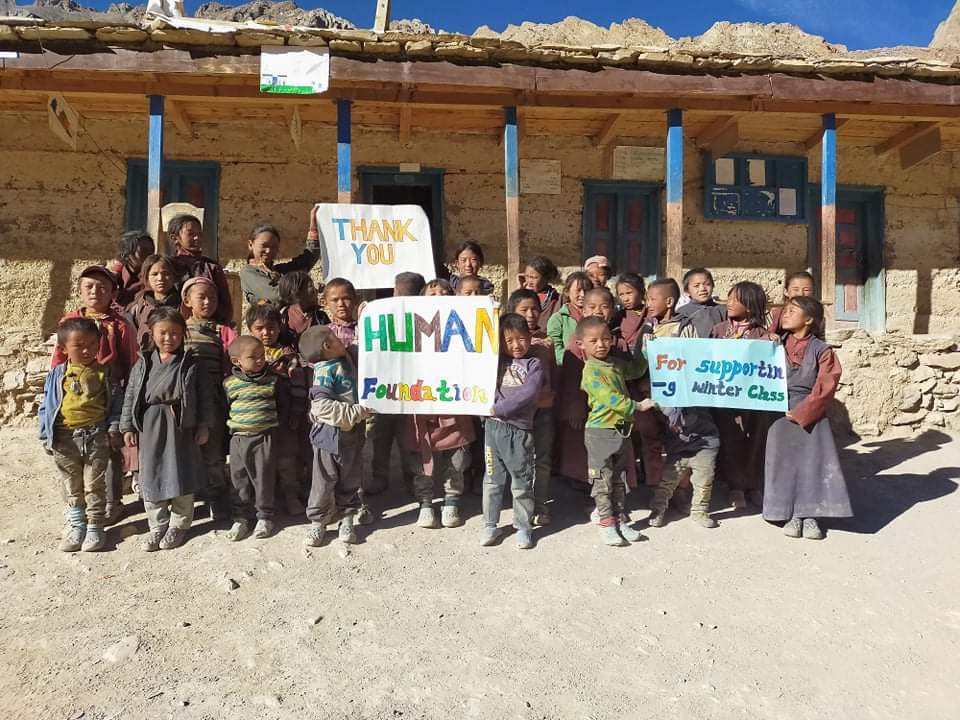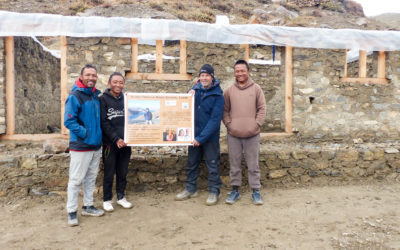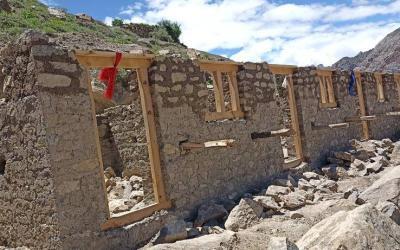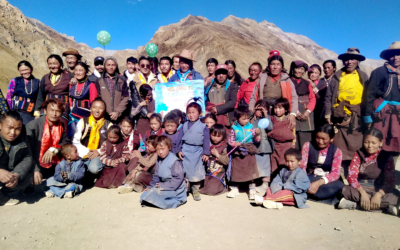Preliminary Remark: The villages and the schools in Upper Dolpo are located in one of the remotest mountainous areas in the world and there is no or hardly any phone contact and Internet is not available. This said, we only can deliver detailed reports of the school sessions for our winter schools with 9-12 months delay after the school period ended. We need to give the school coordinator time to write and provide their reports once they come to Kathmandu. Thank you for your understanding.
The winter session at the Shree Yangjer Gumba Basic School in Nyisal started on November 2019 and was completed end of February 2020. The sessions mainly focussed on reading and writing aspects on the three core language subjects: Tibetan, English and Nepali and also served as remedial courses for other subjects and preperatory classes for the students. Beside that, the winter classes serves as the coaching classes for struggling students and also let the students be involved in extra-curricular activities to fulfill their learning needs and well-being. Examples are chess, puzzles, dance lessons, singing and art classes.
A total of 34 students attended the sessions and the students came from the villages of Musil and Lhuri and from Nyisal, were the school itself is located. The winter season has a huge significance for the people of the Upper Dolpo as the annual festival of Sonam Lhosar falls in this season.
Together with the school management we appointed three teachers and one cook for the winter period. The session was coordinated by Ms. Phurba Sango Gurung, while teaching English to the students. The other teachers Nyima Tashi Gurung and Lodoe Namgyal Lama trained the students in other languages and subjects.
The three teachers differentiated the levels of the students as per their grades and skills. The students were facilitated accordingly. The Tibetan lessons helped students to learn more about social and cultural aspects. All people in Upper Dolpo follow the same culture, so winter classes are always very special for the students and the community in this regard. For graded learning, the teachers grouped the students in beginners, intermediate and advanced skills.
The school is located above the altitude of 3,800 meters, the region experiences heavy snowfall. Here is the daily routine of a school day:
08:30 am – 09:00 am Morning assembly
09:00 am – 12:00 am Morning classes
12:00 am – 01:00 pm Lunch time
01:00 pm – 04:00 pm Afternoon classes
04:00 pm – 04:15 pm Afternoon assembly
At the end of the winter class the teachers conducted an assessment. The evaluation helped in comparing students level. All students made remarkable progress and formed the baseline for the summer classes.
The villagers played the role of guardians during the winter class. Their contribution in terms of materials and other resources were limited. The villagers supported with firewood, potato and other supplies as per their convenience. In general the school was under-resourced and was not capable of proving food to all students. Some students need to get food from their home. This is why we will improve the situation in the future.
The school management is very happy that the HUMAN-Stiftung decided to take over the expenses for the winter school in Nyisal from 2019 on, because the former sponsor was no longer able to support this school.
Overall we successfully managed the first winter school period and decided to increase the financial support from the winter school period 2020-2021 on. In the meantime, this school period ended and at least we received a very short message that everything went well. Unfortunately we need to wait again for several months. If Covid allows, it is planned that I will visit all schools in Saldang and Nyisal and our new small school project in Lhuri in September 2021.
More details about the school project in Lhuri will follow in our next report.
We higly appreciate your support for our winter school projects. Without your help, the schools would not work in the winter period.






